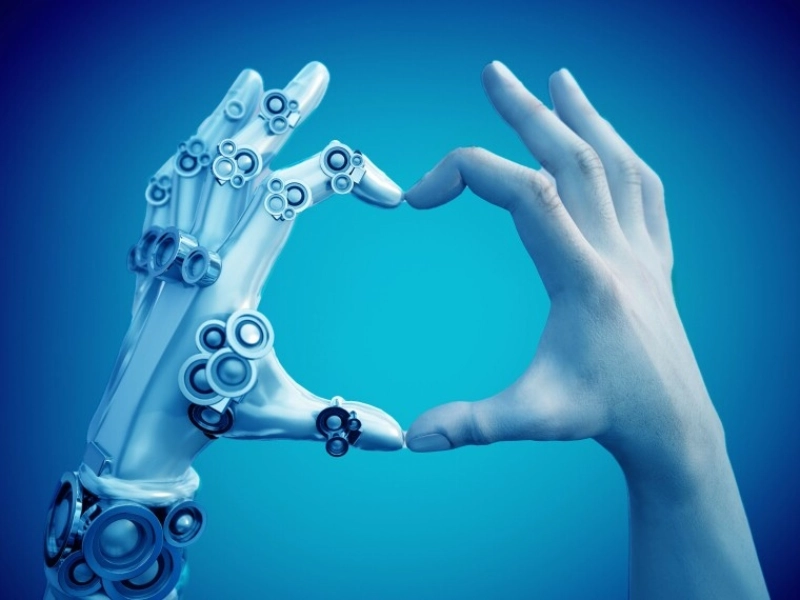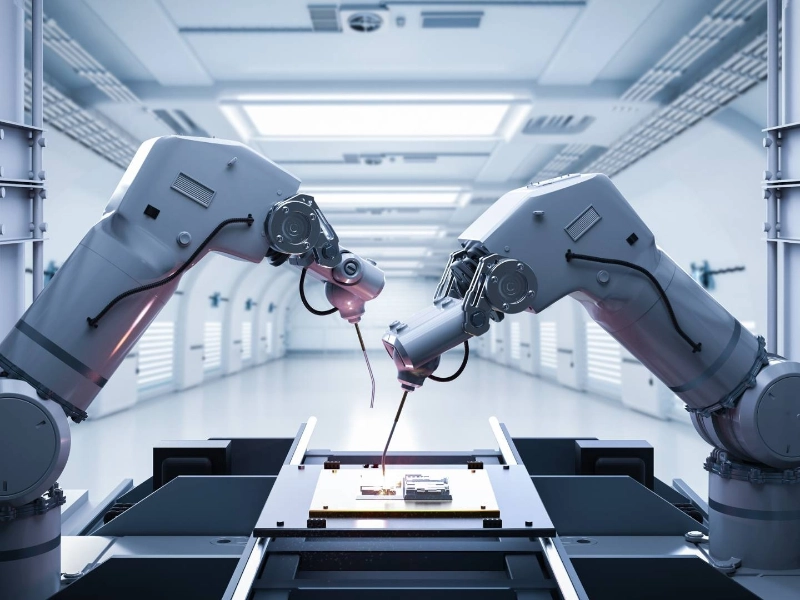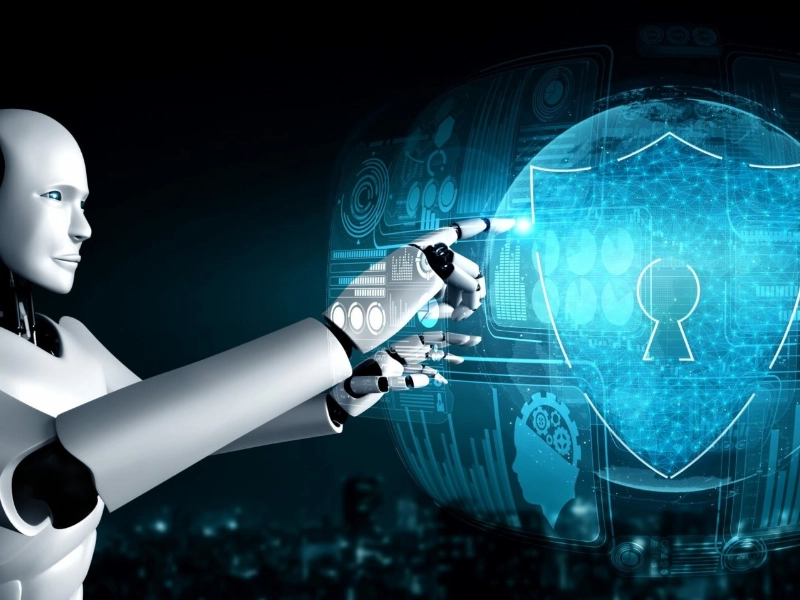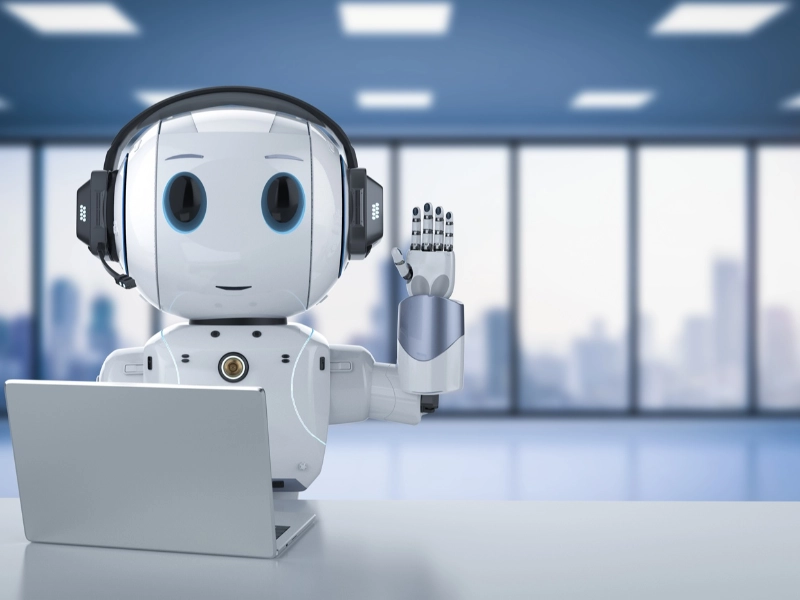The Role Of AI And Automation In The Future Of Online Jobs
Automation and artificial intelligence are quickly changing the business landscape. They spur innovation, boost output and efficiency, and enhance customer care. They also enable people to concentrate on harder jobs and make important choices. By automating fraud detection and threat predictions, they reduce human error and improve security.
Computational Intelligence

Robotic Learning
 The process of teaching computers new tasks through algorithms is known as machine learning. It can forecast demand and analyse consumer behaviour, which makes it useful in a variety of businesses, including marketing. It also aids in inventory management and marketing campaign optimisation. It is also employed in data analysis and disease diagnosis in medical research.
Macroeconomically, AI technology increases labour productivity and industrial structure, which in turn boosts employment. Additionally, it lowers the cost of producing products, increasing businesses' profits in the process. Furthermore, the scale effect brought about by greater productivity lowers the price of goods and raises worker salaries, which raises the demand for labour.
The effects of AI on labour markets differ per nation. Specifically, the labour and digital infrastructure vary among nations. Future research should therefore take into account the variety of AI and investigate its consequences by dividing up the world's nations according to their respective stages of development. Researchers should also look into how AI affects high-level positions like research and design.
The process of teaching computers new tasks through algorithms is known as machine learning. It can forecast demand and analyse consumer behaviour, which makes it useful in a variety of businesses, including marketing. It also aids in inventory management and marketing campaign optimisation. It is also employed in data analysis and disease diagnosis in medical research.
Macroeconomically, AI technology increases labour productivity and industrial structure, which in turn boosts employment. Additionally, it lowers the cost of producing products, increasing businesses' profits in the process. Furthermore, the scale effect brought about by greater productivity lowers the price of goods and raises worker salaries, which raises the demand for labour.
The effects of AI on labour markets differ per nation. Specifically, the labour and digital infrastructure vary among nations. Future research should therefore take into account the variety of AI and investigate its consequences by dividing up the world's nations according to their respective stages of development. Researchers should also look into how AI affects high-level positions like research and design.
Mechanisation
 AI's introduction into the workplace presents both opportunities and difficulties for employment. AI can increase productivity by eliminating manual, repetitive chores that impede concentration and creativity.
By automating risky operations in transportation and manufacturing, it can also increase worker safety. Additionally, it can help businesses anticipate market trends and manage their resources more effectively.
However, the necessity for enormous volumes of training data and the difficulty AI has "generalising" its algorithms across use cases remain its main limitations. Furthermore, it is challenging to describe how it makes decisions because of its lack of openness. Furthermore, it might be challenging to create regulations governing the use of technology due to its rapid progress.
AI will have a complicated effect on employment that differs by nation and industry. People will need to acquire new skills and adjust to the changes brought forth by automation. It can also change the responsibilities of people in current employment and create new ones.
AI's introduction into the workplace presents both opportunities and difficulties for employment. AI can increase productivity by eliminating manual, repetitive chores that impede concentration and creativity.
By automating risky operations in transportation and manufacturing, it can also increase worker safety. Additionally, it can help businesses anticipate market trends and manage their resources more effectively.
However, the necessity for enormous volumes of training data and the difficulty AI has "generalising" its algorithms across use cases remain its main limitations. Furthermore, it is challenging to describe how it makes decisions because of its lack of openness. Furthermore, it might be challenging to create regulations governing the use of technology due to its rapid progress.
AI will have a complicated effect on employment that differs by nation and industry. People will need to acquire new skills and adjust to the changes brought forth by automation. It can also change the responsibilities of people in current employment and create new ones.
Chatbots
 Chatbots are widely used by companies to assist clients with basic enquiries, service requests, and website navigation. Rules-based technology or more sophisticated AI that interprets user input and adjusts responses based on natural language processing (NLP) and machine learning can power chatbots.
AI has the potential to be a very useful tool for improving worker productivity. AI, for instance, may instantly provide workers at contact centres insight into the goals of their customers, allowing them to assist in resolving issues in a timely and effective manner. AI has the potential to speed up drug discovery and therapy development in the biological sciences.
But it's crucial to understand that AI will never be able to fully replace some jobs. A robot, for instance, could be able to produce brief works of art fast and inexpensively, but it will not be able to produce as poignant, emotionally charged messages as human artists can.
Chatbots are widely used by companies to assist clients with basic enquiries, service requests, and website navigation. Rules-based technology or more sophisticated AI that interprets user input and adjusts responses based on natural language processing (NLP) and machine learning can power chatbots.
AI has the potential to be a very useful tool for improving worker productivity. AI, for instance, may instantly provide workers at contact centres insight into the goals of their customers, allowing them to assist in resolving issues in a timely and effective manner. AI has the potential to speed up drug discovery and therapy development in the biological sciences.
But it's crucial to understand that AI will never be able to fully replace some jobs. A robot, for instance, could be able to produce brief works of art fast and inexpensively, but it will not be able to produce as poignant, emotionally charged messages as human artists can.








